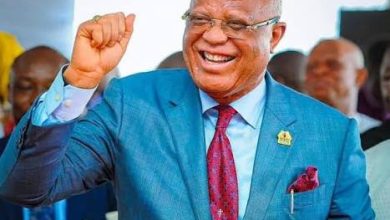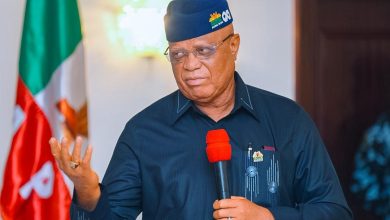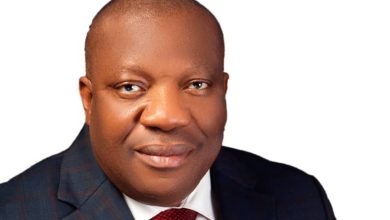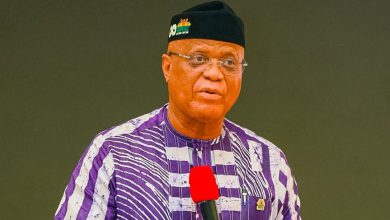Sen. Akpabio’s Latest Promises On The East-West Road


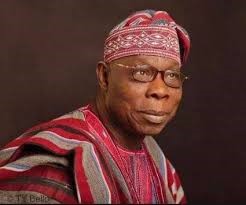
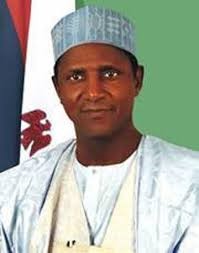
“The President has given me a marching order to get the East-West Road ready for commissioning next year December. I met with the contractors this morning and they are ready to go.” – Minister of Niger Delta Affairs, Sen. Godswill Akpabio, June 2020.
Although the history of the East-West Road actually goes beyond his time, and it was in 2006 during the Obasanjo administration that the project was really brought to limelight in contemporary times.
It is pertinent to recall that Obasanjo’s action was an outcrop of the International Conference on the Development of the Niger Delta Region held in Port Harcourt, Rivers State, between December 10 to 12, 2001, under the aegis of NDDC and UNDP. Among other things, the conference had recommended that no meaningful and compensating development would take place in the region without the completion of the road.
According to the original agreement entered into in 2008 in the days of late Mr. Ufot Ekaette, the pioneer minister of Ministry of Niger Delta Affairs, the road project which, hypothetically, is the largest and longest full-stretch road network in the country, was originally expected to be completed in 2010. That would have been just two years after the concept was revived. But that bogus promise failed woefully, with nothing appreciable to celebrate.
But there have been series of gargantuan promises as government changed batons in successive years while the road has remained a recycled victim of political bait in the last 20 years, designed to woo the electorate prior to and during electioneering campaigns. Depending on President was in charge at a given time, the completion of the road was extended to 2012, then 2013, 2014, 2015 and finally, the first quarter of 2018 by the President Buhari administration. For historically obvious reasons, many a Nigerian is of the opinion that if anything positive and convincing was ever to happen on that road, it should have been during the fortuitous 6-year stint of former President Goodluck Jonathan in Aso Rock.
It is against this backdrop that the recent promise by Sen. Godswill Akpabio that the East-West Road will completed in 2021 must have been received with a mixture of fresh hopes and doubts by a people who justifiably could say that they have seen and heard enough about this glamorously publicised road that can best be described as an obsolete specimen of typical Nigerian politics. But the people can only wait!
Akpabio had on Thursday, June 18, 2020, at a meeting with the re-assembled contractors handling the road project, said that the project is billed for completion in 2021, with the Federal Government having released N19.67billion to fast-track that possibility. In a statement by his spokesperson, Patricia Deworitshe, the minister further reminded his audience that the project was transferred to the Ministry of Niger Delta since 2009. This reminder, apparently was aimed at shoring up the contractors’ confidence in committing available resources to the project without any fears of dedicated financial obligations by government as may have been the case in the past.
“Considering the disposition of the region to the stability of Nigeria’s economy, the project will not only redress infrastructural deficit in the region, its completion will assist the oil industry in terms of moving goods that will facilitate oil production, movement within the area, restiveness and boost the economic life of the people and the nation at large”, the statement projected.
Earlier, President Muhammadu Buhari had in his 2020 Democracy Day Address emphasized on his renewed determination to correct the generational infrastructural deficit in the Niger Delta region by paying practical attention to its developmental Master Plan. “I am determined to ensure that development meant for the people of the Niger Delta region get to them”. Part of this move, according to the President, was the authorization he gave for forensic Audit of the Niger Delta Development. However, twice between 2015 and now, it is expedient to observe that President Buhari has made similar promises of no remarkable impact.
Considered the most vibrant, dependable and enviable cash-flow corridor in Nigeria, the East-West Road project is a-657km dual carriageway stretching from the Delta Steel Roundabout in Delta State and traverses Kaiama in Bayelsa State, Ahoada in Rivers State, Eket in Akwa Ibom State, and down to Odukpani in Cross River State.
Originally divided into four sections of 188km each, the administration of former President Goodluck Jonathan however extended it beyond the Eket-Oron axis, with additional 23km to Odukpani in Cross River State. One source holds that the completion of the final design and drawings for the road has 76 culverts, 29 river bridges of variable lengths ranging from 31m to 260m; and two box girder bridges with lengths of 700m and 850m.
Some extant record shows that the original thought of a possibility to have an expressway to open and link up the entire Niger Delta region, running from the base of the delta into the Gulf of Guinea, may have been born in the early 1970s. That had come after vociferous advocacies and agitations to compensate the area for being the breadwinner of the country since oil was discovered in Olibiri in 1956, with active exploration and exploitation in 1958 that, for the first time, launched Nigeria on the world map as one of commercial producers of crude oil.
Counting from the 70’s, successive Nigerian governments of seven military heads of state and seven civilian leaders in a cumulative period of about 50 years have not been able to make this strategic project a reality. Rather, the road has remained a cash cow of bombastic promises and object of ridicule, recurrent subject of endless controversies and mischievous experiments, and of accusation and counter-accusations bothering on corruption.
It is expedient to point out that although the Niger Delta region holds about 26 per cent of the country’s population, only 17.6 per cent of the country’s aggregate length of roads have been sluggishly meandered through the rich swamps of the impoverished region. Curiously, according to an online platform, estimates have indicated that the project still needs funds in the region of N102 billion for completion.
Therefore, the said release of N19 billion by the Presidency is seen by many analysts as a drop in the ocean. Again, it is a fact that the developmental discourse of the Niger Delta goes beyond road infrastructure to other sectors that are no less significant if government was really genuine in its promises of holistic transformation of the region.
It is however argued that the construction of the East-West Road will improve fishing activities by 27.5 per cent and boost trading activities in the gregarious communities and outside on an average of 24.45 per cent. The road will also improve internally generated revenue by 18 per cent; reduce rural urban drift, enhance employment, and curtail road accidents that have claimed many lives.
At the risk of playing the Devil’s advocate, except the country was purged of its ingrained generational biases, this project may never be logically completed in the next millennium. Indeed, what project of paramount public interest would be so herculean a task for any truly serious and determined Nigerian administration to complete in 20 years! Conversely, if any Nigerian government, past or present, ever saw the East-West Road as a priority and was patriotically focused and so determined to get it done within a time-frame, the project could even have been taken to the Bakassi Peninsula 10 years ago.
So, could Sen. Akpabio’s latest promises anchored on 2021 be the very last of promises on the condonable misfortune of the East-West Road?

